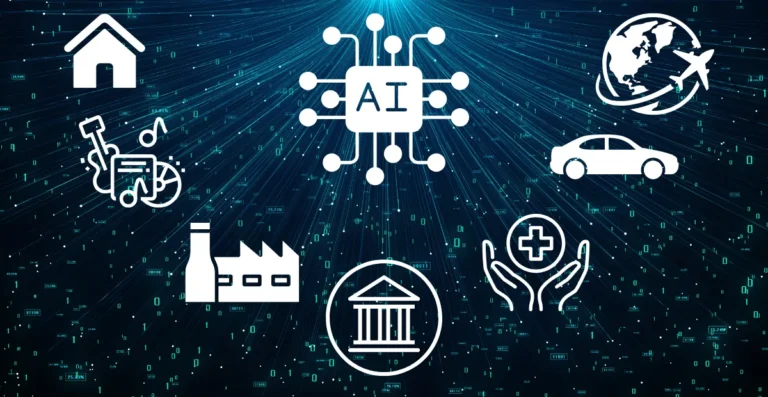The Rise of AI Companions: Are Virtual Friends the New Normal?
Artificial Intelligence (AI) has rapidly evolved from being a tool for productivity and automation into something far more personal. While AI assistants like Siri, Alexa, and Google Assistant helped us schedule meetings or answer quick questions, a new trend is emerging — Rise of AI companions. These digital entities are designed to provide emotional support, friendship, and sometimes even romantic interaction.
In 2026 and beyond, the Rise of AI Companions is not just a futuristic idea — it’s becoming a mainstream reality. But what does this mean for society, relationships, and our sense of identity? Let’s explore how AI companions are shaping the way we interact with technology and each other.
Top Programming Languages to Learn in 2026 for Career Growth
What Are AI Companions?
AI companions are digital systems — often apps, chatbots, or virtual avatars — designed to simulate human-like conversation, empathy, and companionship. Unlike traditional assistants that focus on productivity, AI companions are created to build relationships.
They can:
- Chat with you about your day.
- Provide emotional support during loneliness.
- Act as study or workout partners.
- Simulate romantic or friendship-based interactions.
Some notable examples include Replika AI, Character.AI, and AI-driven avatars in the metaverse. These companions are powered by advanced natural language models, emotional recognition, and in some cases, lifelike 3D avatars.
8 Best AI Companion Apps in 2025 (Tested & Reviewed)
Why the Rise of AI Companions Is Happening Now
The Rise of AI Companions can be attributed to several factors:
- Advancements in AI – Modern language models and neural networks have made AI conversations more natural and emotionally engaging.
- Social Loneliness – With increasing isolation in digital societies, AI companions fill the emotional gap for many individuals.
- Accessibility – Free or low-cost AI apps allow anyone with a smartphone to connect with an AI friend.
- Customization – Users can design AI companions that match their preferences, from personality traits to appearance.
- Cultural Shifts – Younger generations are more open to forming meaningful bonds with digital beings.
This convergence of technology and psychology has positioned AI companions as a new normal in human interaction.
The Psychology Behind the Rise of AI Companions
Humans are naturally social beings. When AI systems can mimic empathy, humor, or affection, people begin to bond with them. This phenomenon, known as anthropomorphism, makes us treat machines like living beings.
Psychologists suggest that:
- AI companions reduce stress and anxiety by providing non-judgmental conversations.
- They act as training wheels for social skills, helping shy or introverted people practice interactions.
- For those experiencing loss, depression, or isolation, AI companions can be a form of emotional coping mechanism.
The Role of AI Companions in Daily Life
The Rise of AI Companions is not limited to personal friendship. They are being integrated into multiple areas of life:
1. Mental Health Support
AI chatbots like Woebot already provide cognitive behavioral therapy (CBT) techniques. In 2026, AI companions will act as personal mental health assistants, offering mindfulness exercises, encouragement, and daily check-ins.
2. Education & Learning
AI tutors designed as companions can help students study in a conversational manner. By turning lessons into discussions, they make learning more engaging.
3. Work & Productivity
AI companions can act as co-working partners, keeping people accountable, setting reminders, and providing encouragement during tasks.
4. Entertainment & Social Interaction
From AI-powered game characters to virtual influencers on TikTok and Instagram, AI companions are already part of entertainment ecosystems.
5. Romantic Relationships
AI companions are even entering the dating space. Some apps allow users to build romantic bonds with AI partners, raising ethical and societal questions.
Benefits of the Rise of AI Companions
There are undeniable advantages to this emerging trend:
- Accessibility of Companionship – Anyone can have a friend, regardless of circumstances.
- Non-judgmental Support – AI companions don’t criticize or discriminate.
- Availability 24/7 – Unlike humans, they’re always online and ready to engage.
- Personalization – Users can design a friend who perfectly fits their emotional needs.
- Safe Exploration – People can experiment with conversations, emotions, and relationships without fear of rejection.
Concerns and Challenges
While the Rise of AI Companions brings benefits, it also raises serious concerns:
- Dependency on AI – People might rely too much on AI and avoid real human connections.
- Privacy Risks – Conversations with AI companions often involve sensitive data that could be exploited.
- Ethical Questions – Should AI companions be allowed to simulate romance, intimacy, or even parenting roles?
- Social Impact – Could widespread AI companionship reduce empathy and human-to-human interaction?
- Mental Health Risks – Instead of addressing loneliness, AI companions might mask deeper issues.
The Future of AI Companions in 2026 and Beyond
The Rise of AI Companions is expected to evolve significantly by 2026:
- Hyper-Realistic Avatars: AI companions will exist not just as text or voice bots, but as ultra-realistic avatars in AR/VR.
- Integration with Wearables: Imagine AI companions monitoring your health via smartwatches and adjusting conversations accordingly.
- Workplace Companions: Companies may deploy AI companions as digital co-workers or motivators.
- Cross-Platform Existence: AI friends could follow you across apps, games, and devices, creating continuity in the relationship.
- Emotional Intelligence Upgrades: Future AI will not just respond but proactively understand moods, adapting accordingly.
Are Virtual Friends the New Normal?
The short answer: Yes, but with balance.
The Rise of AI Companions indicates that digital friendships will become part of everyday life, much like social media did in the 2010s. However, they should complement human relationships, not replace them.
As AI becomes smarter, society will need to set boundaries to ensure emotional health and ethical safety. Just as we adjusted to smartphones and virtual workspaces, we will adapt to AI companions as part of the new normal.
FAQs on the Rise of AI Companions
1. What is an AI companion?
An AI companion is a digital entity — chatbot, app, or avatar — designed to simulate friendship, emotional support, or even romantic interactions.
2. Why are AI companions becoming popular?
The Rise of AI Companions is driven by loneliness, advances in AI, and the growing acceptance of digital relationships in modern culture.
3. Can AI companions replace real friends?
No. While they can provide comfort, AI companions cannot fully replace the depth and authenticity of human relationships.
4. Are AI companions safe?
They can be safe, but privacy risks exist since conversations are often stored by companies. Users should check policies carefully.
5. Will AI companions be normal by 2026?
Yes, the Rise of AI Companions suggests they will be mainstream, especially in education, mental health, and entertainment.
6. Do AI companions help with mental health?
They can provide support and reduce loneliness but are not substitutes for professional therapy or counseling.
Space Tech 2026: How Private Companies Are Changing Space Exploration
Final Thoughts
The Rise of AI Companions is transforming the way we think about friendship, intimacy, and emotional well-being. By 2026, AI companions will be smarter, more lifelike, and more integrated into our daily routines.
Whether viewed as a positive innovation or a societal challenge, one thing is clear: virtual friends are here to stay, and they may indeed become the new normal in human interaction.







